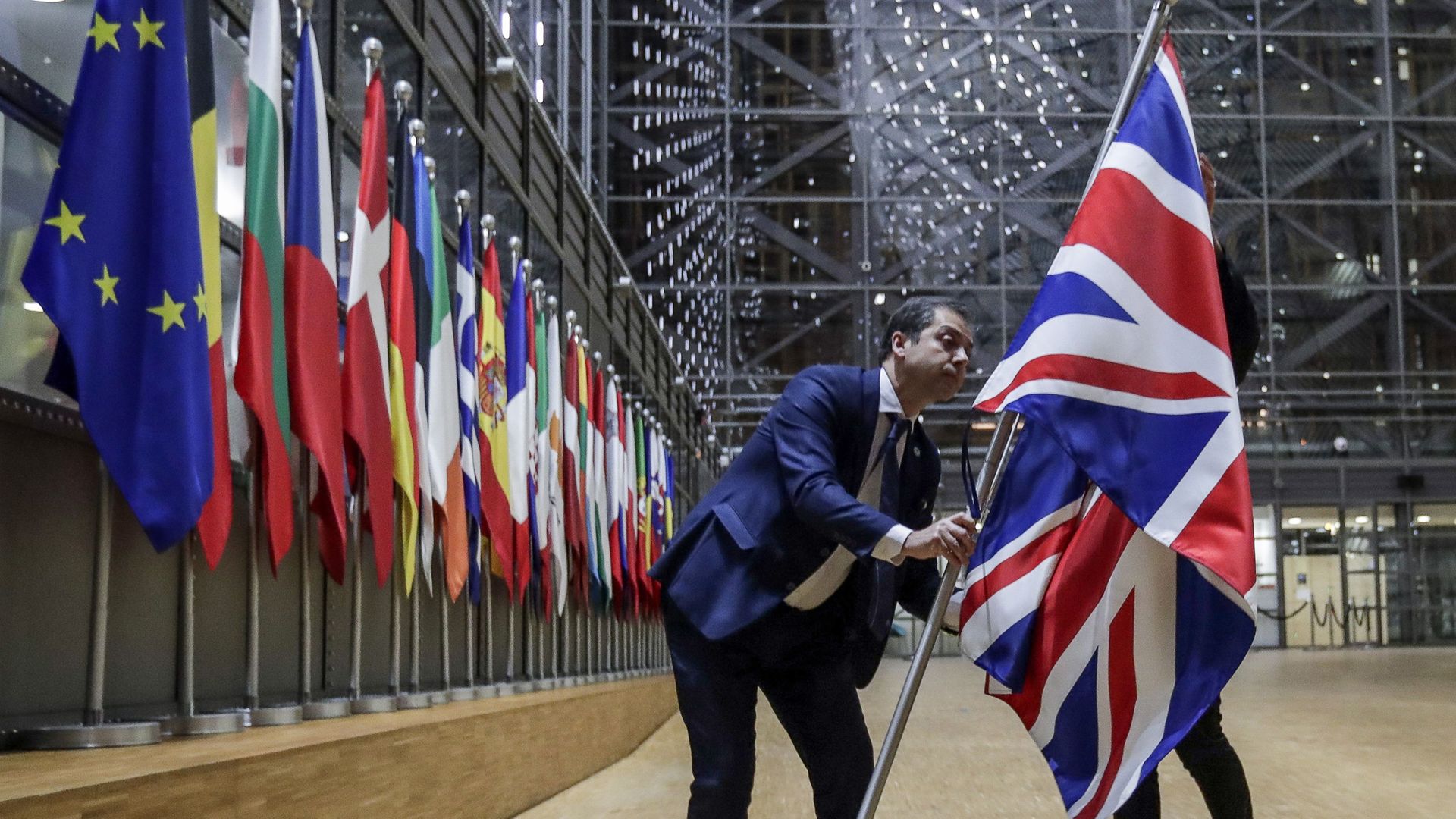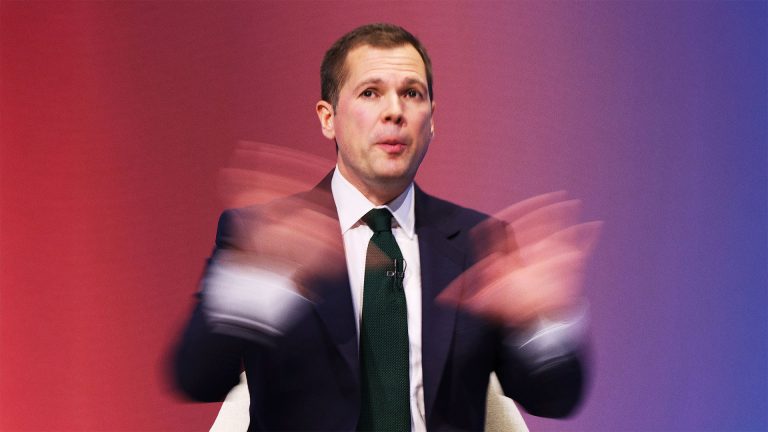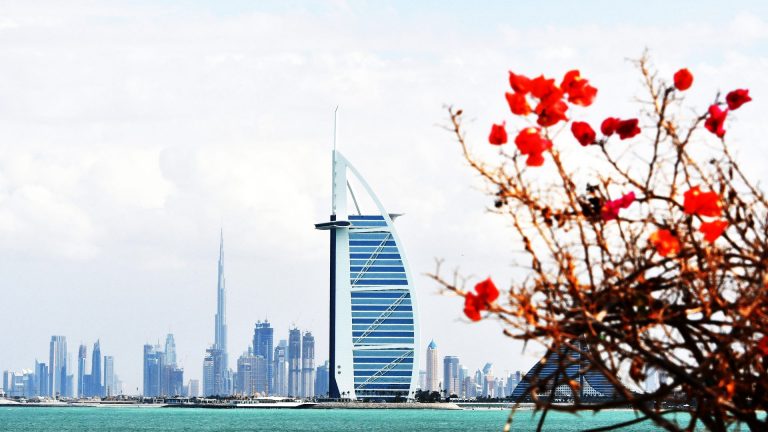
Britain will one day want to rejoin the EU, but will they have us back? Foreign policy expert NICK HOPKINSON outlines a possible route back to membership.
Brexit is our biggest retreat from Europe since Dunkirk. We have distanced ourselves economically, and in many respects politically, from the EU as much as any European country can do, with the possible exception of Belarus.
The good news is that in the context of our islands’ long history, Brexit is but another episode in the ebb and flow of our European engagement. One bad deal is not forever. In due course we may again realise we cannot fulfill our full potential without a closer relationship with one of the world’s three major powers on our doorstep.
It therefore seems reasonable to predict future British governments will in due course seek closer relations with the EU, and one may even make a bid to rejoin it. The big question is how and when we do so.
How is arguably easier to answer: vote out the populist politicians. Trump has been fired. In due course Johnson and his Brexit elite will also lose power. The coronavirus pandemic has exposed their incompetence.
The politicians who lied to us about Brexit have demonstrated they cannot be trusted to manage the pandemic. Only a third rate bunch of politicians would champion a narrative such as Brexit which has no demonstrable benefit other than being a seductive fantasy propelling them to power. Although seemingly a mountain to climb, reality eventually dawns, and we shall in due course elect a pro-European government.
Answering when is more problematic because it takes two to tango. The shape of our future EU relationship will be decided with our EU partners. It is they, as members of the club, who will decide which new members to admit.
If a future United Kingdom, or possibly newly independent national, government(s) signals an intention to rejoin, a positive Commission opinion, unanimity of all 27 EU member states and a majority in the European parliament are all required.
The UK should not expect any generosity from the EU. Just because we are a former member state which decided we no longer wanted to play by the club rules (which we shaped) does not automatically entitle us to rejoin, let alone go to the front of the queue of six other candidate states already lining up.
Even if a candidate meets the criteria for membership, EU member states may conclude they are unable, unwilling, or unready to absorb new members. Faced with the health and economic consequences of the pandemic and continuing immigration pressures, enlargement is hardly a current EU priority. In any case, the EU has been suffering from enlargement fatigue for the last decade.
We have of course applied to join before. In 1961, as the UK’s economic growth and international influence noticeably began to lag behind the EU’s predecessor, the European Community, prime minister Macmillan applied to join the then six member group.
The British application was vetoed by French president Charles de Gaulle who argued UK membership would be ‘incompatible’ due to our ‘nature and structure’, notably our maritime and international connections, and more industrial, less agricultural, economic system. A second bid was blocked by de Gaulle in 1967, but was ultimately approved in 1969 after he lost power and the UK joined in 1973.
The EU would not be assessing the UK which applied 50 years ago. Obviously both have changed and will continue to change. Although EU mainstream sentiment was one of deep regret that the UK left, some were glad to see the back of a semi-detached, at times obstructive, partner.
It is often forgotten that the UK made major contributions to European integration, notably championing the single market and the EU’s enlargement to northern, central and southern Europe.
The UK’s ‘cakeist’ behaviour before and during the negotiations on the Withdrawal Agreement and future relationship is likely to be relatively fresh in EU minds. No international negotiation is ever smooth but there are genuine question marks over whether the UK negotiated in good faith during the transition period, e.g. clauses of the Internal Market Bill broke international treaty commitments we made.
Members of the European parliament might think twice before considering whether badly behaved Eurosceptic members should be allowed back into its hemicycle. Such experiences feed into perceptions of ‘perfidious Albion’.
In short, the EU will need to be convinced that the UK has truly changed and there is a new broad and sustainable political and public consensus in favour of membership, and if readmitted the UK would play a full and constructive part.
Wishful thinking should not blind us to the hard reality that we shall have a tough sell both domestically and in the EU. Whilst some neighbouring member states may be favourable, notably Ireland, others may not.
Small but powerful interest groups in the EU can delay, even, block accession, e.g. French farmers strongly opposed the accession of highly agricultural central European countries. The longer the UK remains outside the EU, the more we diverge from EU norms, and interests benefiting from our departure grow more entrenched.
If we wish closer relations with the EU, we shall again have to become more aligned with EU policies and legislation. The accession experience of 16 northern, central and southern European countries between the breaching of the Iron Curtain and 2009 is more relevant than our experience joining 50 years ago.
The initial cornerstone of the pre-accession process, the ‘structured dialogue’, sarcastically referred to by Central European candidates as the ‘structured monologue’, arose because the EU effectively told them what they had to do to join.
Candidates had to adopt and transpose some 100,000 pages of EU legislation and rules (acquis communautaire). Take it or leave it. The only concessions candidates might hope to secure were a few long transition periods to adopt rules, and some derogations from seemingly minor issues – for instance, Sweden secured agreement to sell snus tobacco.
Negotiations with the EU is not one of sovereign equals, as is currently argued. The international jungle does not respect the formal parity of the participants – the power of the strongest prevails. Size matters. The EU, with roughly seven times the UK’s population and an economy approximately six times larger, has and will continue to have more negotiating leverage.
So what are the membership criteria for candidates? The enlargement process is stipulated in Article 49 of the EU’s comprehensive treaty. The broad criteria was best outlined by the 1993 Copenhagen Council: “Membership requires that the candidate country has achieved stability of institutions guaranteeing democracy, the rule of law, human rights and respect for and protection of minorities, the existence of a functioning market economy as well as the capacity to cope with pressure and market forces within the EU. Membership pre-supposes the candidate’s ability to take on the obligations of membership including adherence to the aims of political, economic and monetary union”.
Unfortunately, as we diverge from the EU acquis, we less and less meet the criteria. Some observers regard us as a less trustworthy, if not ‘rogue’, state. To start negotiations, we shall have to provide assurances about democratic checks and balances in our political system.
The recent illegal proroguing of parliament, undermining of our civil service and even our independent judiciary do not stand us in good stead. Some suggest we need an elected House of Lords. The malign influence of much of our print media may be a concern.
The Withdrawal Agreement treaty and agreements under the future relationship will be the building blocks for closer relations with the EU. Our compliance with the Withdrawal Agreement, particularly the Northern Ireland Protocol and treatment of EU citizens living in the UK, will be closely scrutinised.
The UK must continue to comply with the European Convention on Human Rights. Regaining our previous opt outs from economic and monetary union and Schengen and another budget rebate appear a pipe dream, although some wiggle room cannot be entirely ruled out.
As a rules-based organisation, the EU will take time to consider bids to join. The first central European bid to join was submitted in 1994 with a ‘regatta’ of 10 central and southern European countries only joining a decade later.
The quickest accession from signalling an intention to join was Finland which took only three years. Serbia submitted its application in 2009 with the stated ambition of “beating all records for the fastest EU accession”. Eleven years later, Serbia remains outside the EU, as does Turkey which bid to join 33 years ago.
Given the long timelines and complexity of accession, candidates gradually align with the EU acquis in stages. For example, in 1990 the EU opened negotiations on associate membership with the Visegrad central European countries.
The Europe Agreements established institutional frameworks for political dialogue and economic co-operation including aid and trade. Alignment with the EU’s core four freedoms (of goods, services, capital and people) followed later.
The 1994 Essen European Council stated “preparation for the internal market must be at the heart of the pre-accession strategy”. The 1995 Cannes European Council listed 150 priority internal market measures for candidates to make their legislation compatible with EU standards. Effective competition policy and state aids disciplines were required to ensure prices and market mechanisms would not be distorted.
Four former European Free Trade Association countries ultimately decided not to join the EU, of which three negotiated the European Economic Area agreements which essentially extended the single market but staying outside EU political, farming and fishing policies. Switzerland has a bureaucratic patchwork of 20 main bilateral and 100 other sectoral, security, scientific and other agreements.
Turkey’s incomplete customs union, finalised in 1996, allows for continued protection for EU agriculture and Turkey’s industrial sector. It however adopted some aspects of the EU’s internal market, namely a ‘level playing field’ for competition, technical regulations and the protection of intellectual property and accepted institutional co-operation.
The hard Brexit chosen by this government increases the chances of a break-up of the United Kingdom, and opens up the possibility of a fast track to rejoining for some of its parts.
An independent Scotland under Article 49 might be viewed favourably as a small state recently aligned with the acquis with a clear consensus on membership. However, Spanish opposition to the accession of an independent Scotland cannot be ruled out as it might provide a precedent for Catalonian independence.
If there are majorities in both Northern Ireland and Ireland in a border poll on Irish unity held under the Good Friday Agreement, there is the precedent of the (East) German Democratic Republic’s ‘enlargement without accession and treaty’ (the five eastern Länder joined the EU after a rapid approximation process and reunification with the Federal Republic of Germany). Even Wales, where the independence debate is gaining traction, could follow Northern Ireland and Scotland.
Faced with this daunting process, there are a myriad of specific actions which can help advance closer relations with the EU and in due course rejoining:
1.) Continue to identify and expose the adverse consequences of Brexit, and in so doing advocate the benefits of the closest possible co-operation with the EU including joining pan-European educational, cultural, medical, environmental and scientific programmes and maintaining high food standards;
2.) Ensure Covid-19 and the EU are not blamed for the consequences of Brexit. In so doing, demonstrate how Brexit undermines attempts to combat the pandemic;
3.) Ensure the government honours the commitments it made in the Withdrawal Agreement. Infringements not only adversely affect the UK-EU trade relationship but others, notably that with the US;
4.) Keep pressing our political parties to commit to rejoining as a medium term goal;
5.) At an appropriate time, campaign for a public vote on rejoining the EU and for the UK to rejoin it.
When making a long journey, we know we cannot arrive at our destination tomorrow. We plan to reach milestones, and understand we may encounter delays and detours on the way. Once we have joined again, we should bear in mind that EU membership is not the answer to all our problems – it is just that we shall find ourselves in a much better place than where we are now.
Nick Hopkinson is a former director of Wilton Park, the international policy forum, and writes in a personal capacity. In the 1990s and 2000s, he was involved in UK efforts to champion enlargement of the EU. He posts regularly on Twitter @nickhopkinsonEU









